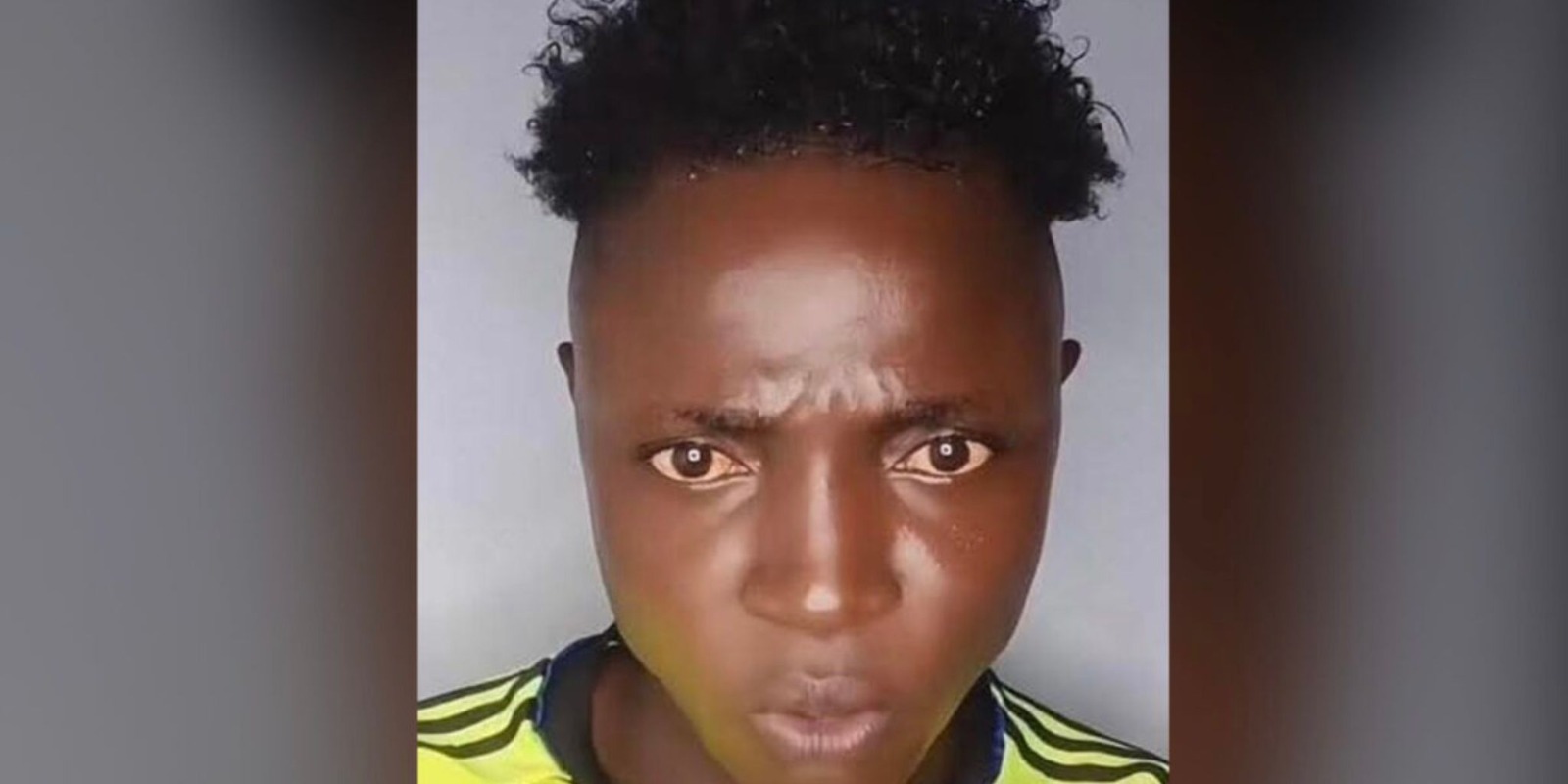
Dragged from the Shadows: Outrage as Police Nab Popular TikToker in Gestapo-Style Abduction

A storm of public outrage has been stirred following the controversial arrest and detention of popular TikTok personality, Saheed Jamiu Osama, better known as Shamsodium, and his associate, Uyime Godwin Udoekwere, under troubling circumstances that human rights activists have described as illegal, inhumane, and reminiscent of a military dictatorship.
The Youth Rights Campaign (YRC), a vocal civil rights group, raised the alarm in a strongly worded statement released on Friday, condemning what it described as a brazen abuse of police power and a clear violation of the fundamental rights of both men. The group’s National Secretary, Francis Nwapa, laid out a chilling account of how Osama, a digital content creator with a growing audience online, was allegedly tricked by the police into a fake video shoot appointment in Lekki, only to be ambushed, forcefully abducted, stripped, starved, and locked away without legal access for days.
The YRC accuses operatives of the Delta Attack Unit from the Lagos State Police Criminal Investigation Department (SCID) Panti of orchestrating a gestapo-style operation that led to the arrest of Osama on July 18, 2025. According to the statement, Osama was whisked away in a Sienna vehicle by plain-clothed officers who reportedly gave no immediate reason for the arrest and withheld communication from his family or legal representatives. He was later arraigned before Justice Ibrahim Kala of the Federal High Court in Lagos on July 25, alongside Udoekwere, facing charges of conspiracy, cyberstalking, and character defamation of Mrs. Omowunmi Aloba, the widow of late singer Ilerioluwa Aloba, known as Mohbad.
The police prosecutor, Anthony Iyeye, alleged that between July 4 and 5, Osama and Udoekwere, along with others still at large, used computer networks to spread defamatory statements targeting Omowunmi. These allegations, however, have taken a backseat in the court of public opinion as concerns mount over the manner of their arrest, the conditions of their detention, and the larger implications for freedom of speech and due process in Nigeria.
Nwapa’s statement painted a dire picture. He revealed that Osama was not only deceived into the arrest under the pretext of a legitimate job offer but was also subjected to degrading treatment upon arriving at SCID Panti. “He was stripped naked, thrown into the cell, and left for several days without food or access to his family or legal counsel, until he was secretly taken to court on Friday 25th July after public outcry,” Nwapa said.
Even more shocking was the account of how Udoekwere was arrested. According to Nwapa, police operatives used Osama—already in custody—as bait. Officers allegedly held a gun to his head and forced him to lure his associate to a designated location under false pretenses. Udoekwere, a graphics designer who reportedly helped Osama design protest placards, unsuspectingly walked into the trap and was swiftly arrested by waiting officers.
YRC has since declared the arrests as politically motivated and a gross misuse of state security apparatus for what should be a civil matter of defamation. “Allegations of libel or defamation are civil offences that should be pursued through proper legal channels, not through abductions and coercion,” Nwapa emphasized.
Lawyers representing the duo have reportedly filed bail applications at the vacation court and expressed hope that Osama and Udoekwere will soon regain their freedom. But the damage, observers say, may already have been done. The incident has sparked national debate on the growing misuse of cybercrime laws by the police to muzzle online critics, especially those expressing dissent or questioning influential public figures.
Legal experts and rights activists warn that the pattern of arrests—often carried out without warrants, proper identification, or adherence to standard procedure—sets a dangerous precedent and reflects a broader assault on democratic freedoms. “This isn’t just about two young men in a cell; this is about the creeping erosion of our civil liberties in broad daylight,” said a Lagos-based human rights lawyer who asked to remain anonymous.
Osama's sudden disappearance prior to his court appearance was reportedly so silent and calculated that even close friends and colleagues were left in the dark for several days. His family only learned of his whereabouts after public pressure mounted on social media, with hashtags demanding his release trending for days.
The YRC's public denunciation has added more fuel to the fire. “We strongly condemn this manner of illegal abduction of citizens by the Nigeria Police and depriving them of food and access to legal counsel or family members. This act is not just unprofessional policing but illegal,” Nwapa reiterated, warning that such tactics, if unchecked, could plunge the country into an era of unchecked police authoritarianism.
The controversy also raises questions about the increasing collaboration between state security forces and powerful individuals who allegedly use police resources to settle personal grievances. With Mohbad’s death still wrapped in conspiracy theories, and his widow now at the center of this new storm, public distrust in the legal process and the integrity of law enforcement continues to grow.
As of now, Osama and Udoekwere remain in detention at the Ikoyi Correctional Centre, awaiting a ruling on their bail application. The case is scheduled for further hearing pending judicial approval from the vacation court.
In the meantime, social media continues to buzz with commentary, support, and calls for justice, as Nigerians demand not just the release of the accused but a comprehensive investigation into the conduct of the D17 unit. Civil society groups are reportedly planning peaceful protests and legal action if justice is not swiftly served.
As the country watches, one thing is certain—this case has become much more than a legal dispute over defamation. It is now a litmus test for human rights in Nigeria, a nation where voices of dissent are increasingly being silenced not by laws, but by fear.


